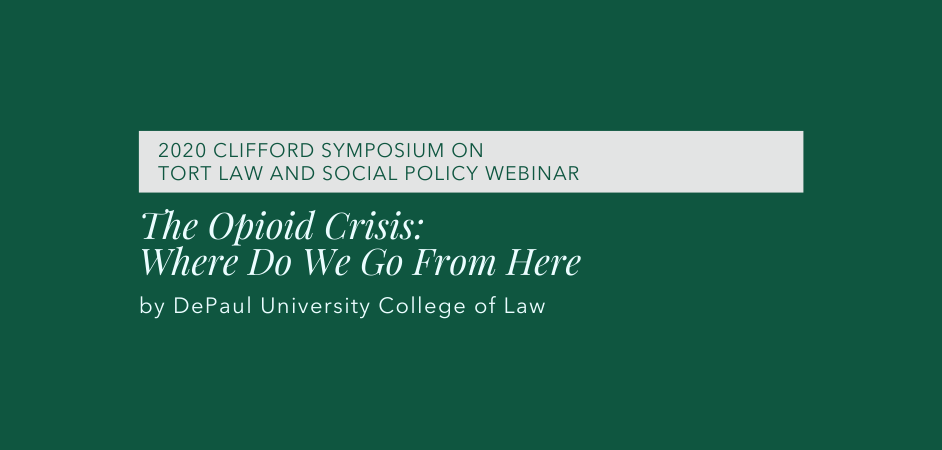“The Opioid Crisis: Where Do We Go From Here?” is the topic of the 26th Annual Clifford Symposium on Tort Law and Social Policy by DePaul University College of Law.
The 2-day meeting will be held as an online virtual program beginning May 28, 2020. The program will be available for viewing and CLE credit in modules that include “Corporate Misconduct in the Drug Industry” and “Using Litigation to Effectively Abate Opioid Health Harms.”
Academics from around the country will gather for the two-day program to discuss how the multi-district litigation process works with mass torts and solutions including public nuisance and criminal sanctions. The topic is particularly timely given the coronavirus that impacts world health issues and how a nation recovers.
DePaul Law School Professor Stephan Landsman, organizer and director of the symposium, will lead the discussion among more than two dozen law school faculty, medical experts and national policy scholars including Kenneth Feinberg who has served as mediator on several high-profile international crises including serving as Special Master of the September 11 Victim Compensation Fund. Also attending are Northwestern University School of Law Professor Zachary Clopton, Yale University Law School Professor Abbe Gluck and Harvard University Law Professor William Rubenstein.
Robert A. Clifford, founder and senior partner of Clifford Law Offices who endowed the tort law and social policy chair in 1994 at DePaul, will offer introductory remarks along with DePaul Law School Dean Jennifer Rosato Perea.
Each speaker writes a thought-intensive article that appears in a special edition of the DePaul University School of Law Review. The virtual Clifford Symposium is free and open to the public and offers up to seven hours of CLE credit. Registration is required; the deadline is May 27th.
To register go to https://2020clifford.eventbrite.com or call 312-362-8372.
Other topics over the past 25 year included “Patient Safety: How Might the Law Help?”, “The Impact of Dark Money on Judicial Elections and Judicial Behavior” and “Privacy, Data Theft and Corporate Responsibility.”

